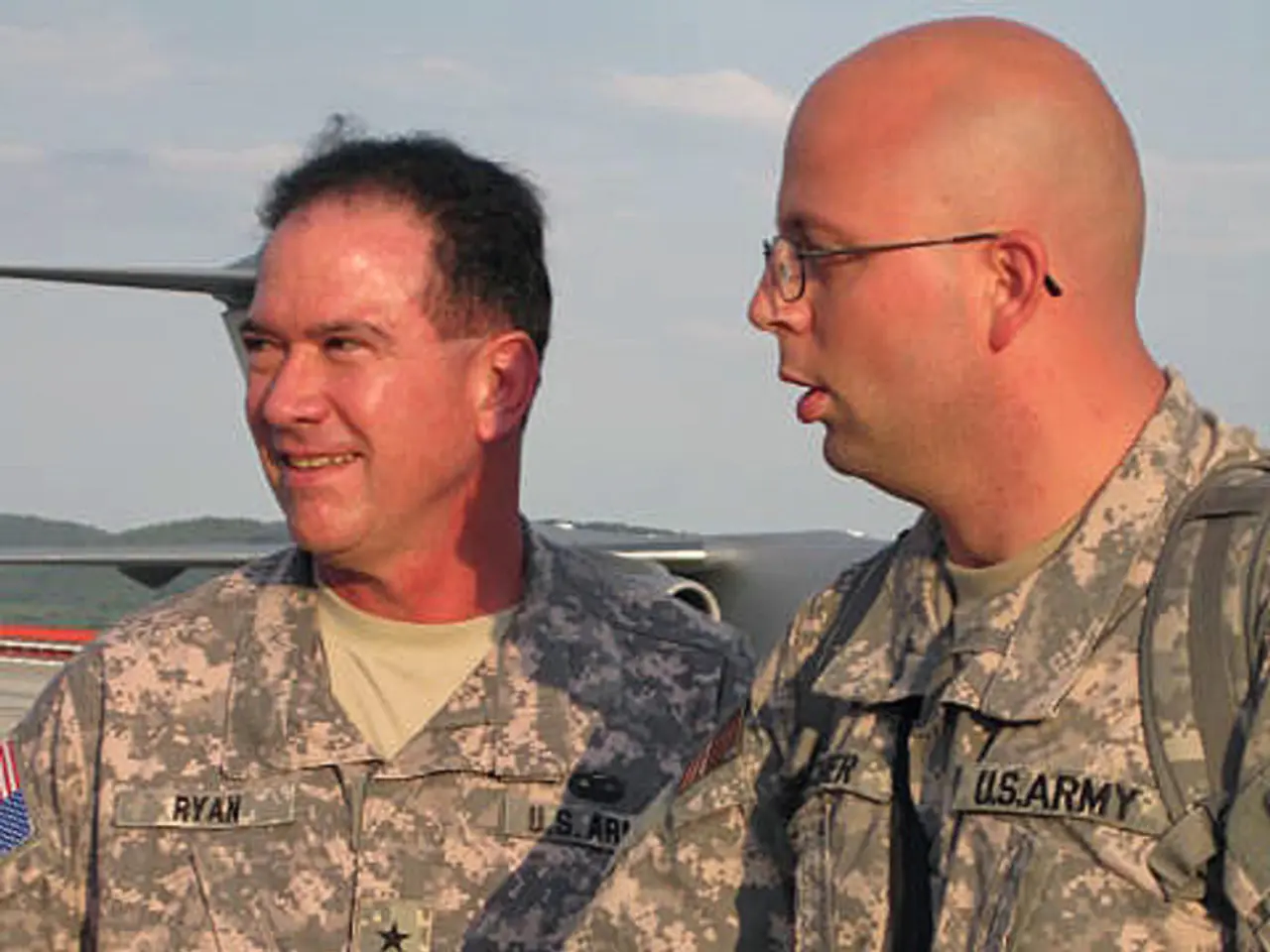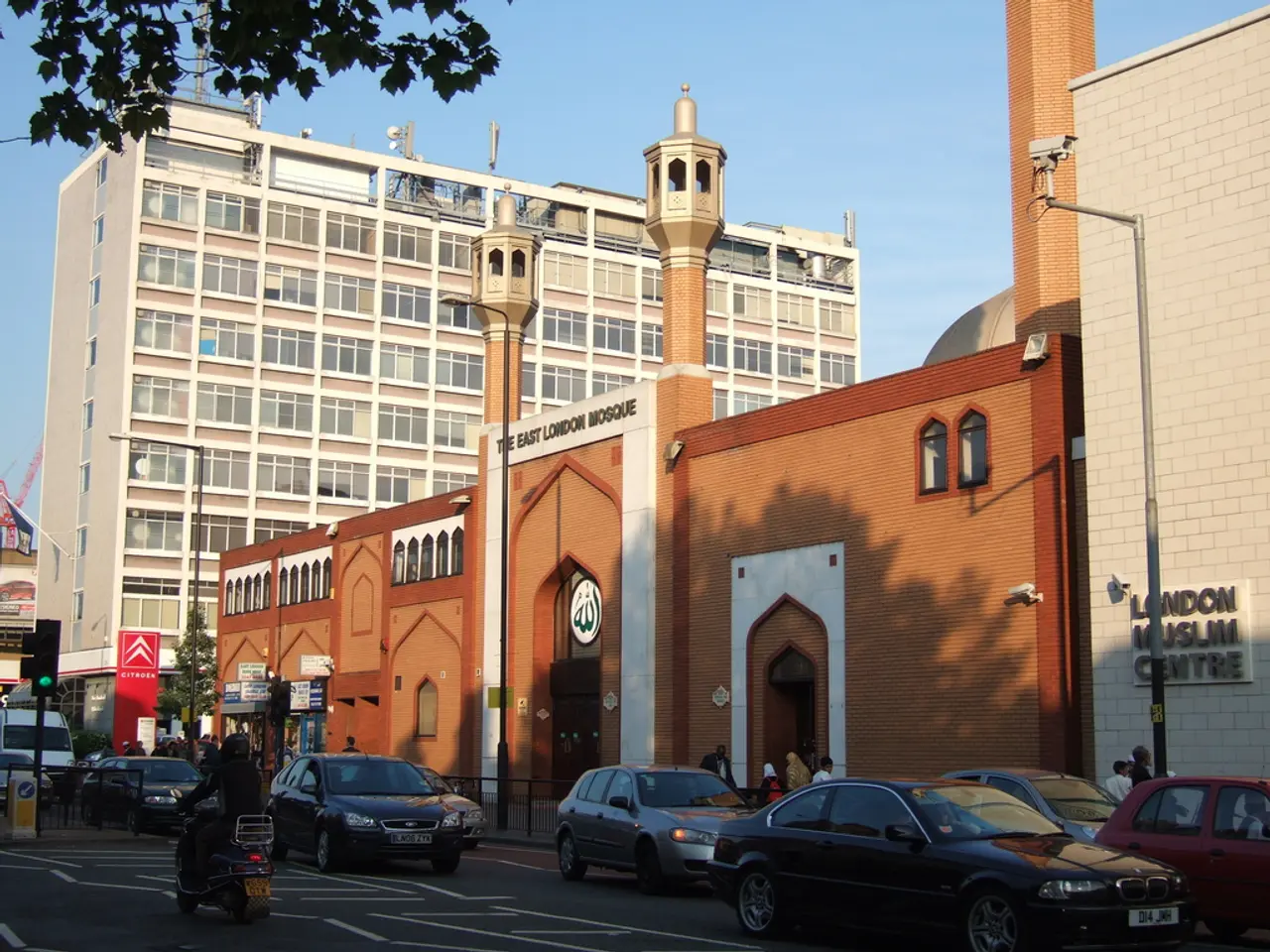Syrian military headquarters in Damascus reportedly targeted by Israeli military, according to their statements.
In the heart of July 2025, relations between Israel and Syria have reached a boiling point, with heightened tension and volatile political circumstances following a series of Israeli airstrikes on Syria's military headquarters in Damascus.
The airstrikes, which occurred on July 15, targeted the Syrian Defense Ministry and areas near the presidential palace. The attacks resulted in at least three fatalities and over thirty injuries in Damascus, marking a significant blow to the fledgling Syrian government's sovereignty.
The violence in southern Syria had commenced on July 13 in the Suwayda region, involving Druze and Bedouin armed groups. The Syrian transitional government intervened to restore order but withdrew after a ceasefire was reached on July 16. However, tensions persist, as some Druze factions have rejected the ceasefire and continued to engage in violence against Bedouin tribes.
Israel's actions are driven by pressure from the Israeli Druze community and security concerns over the instability in Syria. The strikes disrupted ongoing backchannel talks aimed at Syrian-Israeli deescalation and significantly set back prospects for normalization between the two countries. While a full normalization deal seems unlikely in the near term, experts suggest that a limited nonaggression agreement may still be possible if Israel’s security concerns are addressed and its military operations inside Syria are contained.
Syria’s foreign ministry has accused Israel of exacerbating sectarian tensions to undermine the Syrian government, while ceasefire agreements in southern Syria indicate Damascus’s desire to prevent further escalation with Israel. Despite diplomatic efforts involving external mediators, the situation remains fragile, with Israel warning it is prepared for continued military engagement if necessary.
Turkey, too, has entered the fray, with the Turkish Foreign Ministry urging Israel to immediately cease its use of military force in southern Syria. The Turkish statement supports the steps taken by the Syrian government to establish security across the country and strengthen its presence. Maintaining stability and security in Syria, according to the Turkish statement, benefits primarily the Syrian people, neighboring countries, and the broader region.
Meanwhile, Israel has threatened to raise the level of its responses against the Syrian regime if its message is not understood. The Israeli Defense Minister, Israel Katz, has called on Syria to "leave the Druze in Sweida alone." Israel has also announced its intention to enforce the demilitarization policy it has decided on regarding the Druze in Syria.
The conflict has resulted in a significant loss of life, with more than 30 people killed and nearly 100 others injured in clashes between armed Bedouin tribal fighters and Druze militias in Suwayda. The violence continues, as Israeli warplanes launch multiple airstrikes targeting southern Syria's Suwayda governorate and Daraa in the country's southwest.
In a recent development, Syria's leader for nearly 25 years, Bashar al-Assad, fled to Russia in December, ending the Baath Party regime, which had been in power since 1963. The political landscape of the region continues to evolve, with the potential for limited nonaggression pacts but no immediate prospect for full normalization between Israel and Syria.
The airstrikes in southern Syria, initiated by Israel on July 15, have intensified the region's politics, leading to war-and-conflicts, as depicted by the ongoing violence between Druze and Bedouin armed groups. As a result, general-news outlets are closely monitoring the situation, with Turkey also expressing concern and urging Israel to halt military actions in Syria.








